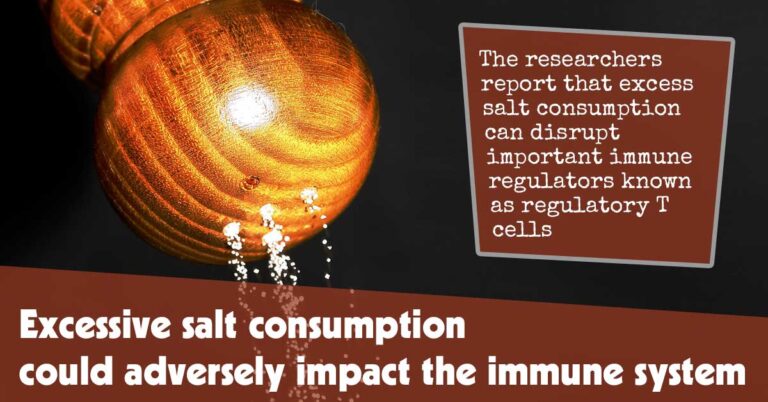Overconsumption of Salt May Negatively Affect the Immune System
According to research, eating an excessive amount of salt could have adverse repercussions for one’s immune system. According to scientists, excessive salt consumption can impede key immune regulators such as regulatory T cells by damaging their energy metabolism.
Regulatory T cells ensure immune responses are handled in an ordered fashion, yet excessive salt intake reduces their energy sources and may render them temporarily dysfunctional.
Studies have demonstrated that excess salt consumption can negatively alter metabolism and energy balance for specific kinds of innate immune cells such as macrophages and monocytes, thus hindering them from operating effectively.
Salt has long been linked with mitochondrial malfunction, but researchers wanted to see whether too much salt could also have the same adverse impact on adaptive immune cells such as regulatory T cells (also called Tregs).
Tregs play an essential part of adaptive immunity. Their main task is balancing normal function against excess inflammation that could compromise it; sometimes known as the “immune police”, Tregs make sure immune responses take place without harming host organisms in any way.
